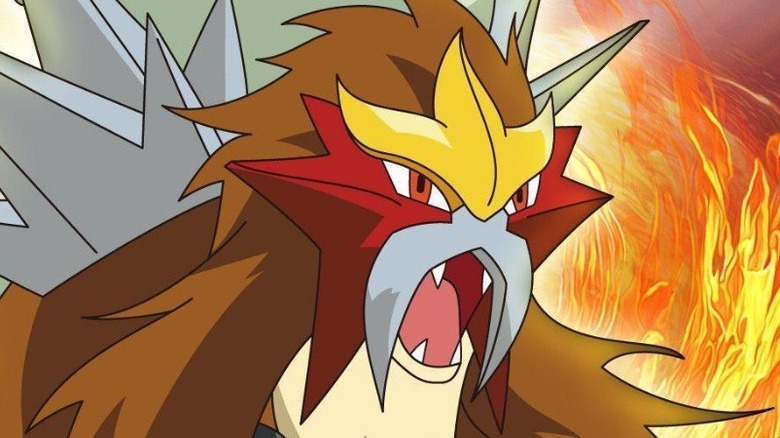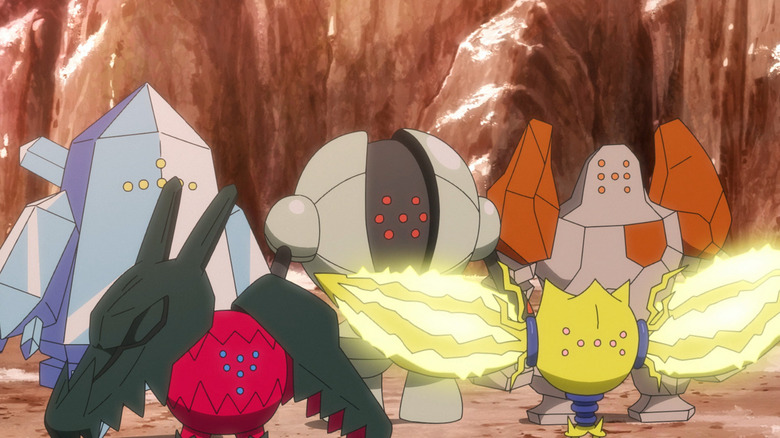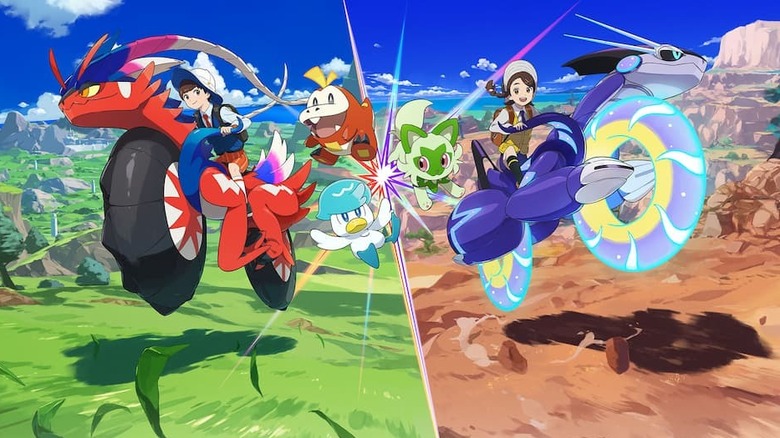Legendary Pokémon Are More Stressful Than Exciting
Legendary Pokémon have always been a fixture in the "Pokémon" franchise. Ever since players first heard rumblings on the schoolyard about Mewtwo hiding in the Unknown Dungeon off the coast of Cerulean City, players have relished the opportunity to track down the most elusive monsters in every region. Starting with Gen 2, these impressive beasts have graced the front covers of each new "Pokémon" game, often bumping the players' trusty starter Pokémon from their marquee positions. It makes sense why aspiring trainers covet these powerful Pokémon, but ... doesn't it kinda suck to try to catch 'em all?
Don't get the wrong idea: Legendary Pokémon are still awesome, especially as the series has evolved and their designs have become more esoteric and outside-the-box. Heck, the most recent generation — "Pokémon Scarlet" and "Violet" — introduced Pokémon that are half-dragon and half-motorcycle! But the methods available for capturing these rare species of Pokémon have also varied wildly over the years, going from a test of skill to a test of patience. Maybe it's the fact that some of us OG "Pokémon" players are getting too old for the hunt, but Legendary Pokémon generally feel less exciting (and more frustrating) than they used to.
Legendary Pokémon can be too difficult to capture
There are an infuriating number of hoops for players to jump through in order to capture many of the series' Legendary Pokémon. While many remain in stationary positions around the map, others delight in the thrill of the chase. Generation 2 introduced the idea of Legendary Pokémon who will run from the player, necessitating constant jaunts from one end of the map to another in order to eventually whittle down their health and attempt a capture. Players who grew up with these entries no doubt have vivid memories of cursing at their Game Boy Colors as Raikou, Suicune, or Entei woke up from their stunned state and beat a quick retreat. Even given how tough the Legendaries were in the first generation of "Pokémon" games, this was the first real taste of how frustrating the hunt could be.
Later games did little to ease these frustrations, however. Gen 3 required players to solve a series of complex braille puzzles in order to access its Legendary Titans, which then bust out of Poké Balls like they're made of papier-mâché. Other Legendary Pokémon, like Celebi, are almost impossible to catch now, their availability having been relegated to limited time events. Even when the Legendaries are encountered as part of a game's plot, as was the case with titles like "Black and White" or "Pokémon Emerald," they're absolute item-sinks.
The tough-but-manageable battles of previous generations have largely been replaced by monsters who will shrug off status-affecting attacks, not to mention one Poké Ball after another. Oh, and don't even get us started on how expensive it can be to try to wrangle one of these beasts in "Pokémon GO."
Legendary Pokémon aren't the incentive they once were
While some games have made it possible for players to truly catch all of the Legendaries of their respective generations, others have locked that privilege behind certain titles. For instance, one of the best things the otherwise underwhelming "Scarlet" and "Violet" did for players was making its marquee Legendary Pokémon available right from the jump. Players rescue either Miraidon or Koraidon at the beginning of the campaign, enlisting their newfound pal as a mount and, eventually, a full-fledged member of their party. It's an elegant solution to the issue of having to track down each and every Legendary (although there are still plenty of those to find in the rest of the game).
Unfortunately, you can only capture Miraidon in "Pokémon Violet," whereas "Koraidon" is exclusive to "Pokémon Scarlet." The only way to get one in their opposite-colored title is to either hack the game or find a player willing to trade you their beloved Legendary to complete your Pokédex. The same goes for every other game with a title-exclusive Legendary Pokémon. The exclusivity certainly helps to boost Nintendo's financial returns with each entry of the series, but the slight differences between each generation's two games typically aren't enough to justify double-dipping, even for the love of Legendary Pokémon. This is especially true when one considers just how expensive video games have become in the modern era.
It's unlikely that The Pokémon Company will ever back away from these tried-and-true formulas in any major way, especially since each game has managed to be a mega-hit without too many deviations. Still, it's hard not to notice that the aforementioned formula is getting a bit stale after nearly three decades and dozens of games.



